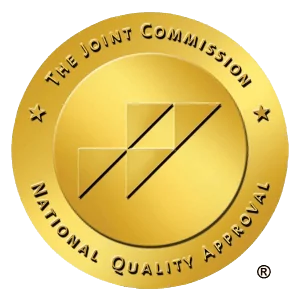Recognizing Genuine Commitment to Recovery
The path to recovery from addiction is often complex and deeply personal. For those supporting a loved one through this journey, one of the most pressing questions is how to discern if they are genuinely committed to overcoming their addiction. This article offers insights into key indicators that can help you understand if an addict is serious about their recovery.Acknowledgment of the Addiction
Understanding the Role of Self-Awareness
The journey to recovery begins with the addict’s acknowledgment of their addiction. This step is more than just admitting a problem exists; it’s about developing a deep self-awareness regarding the nature and impact of their addiction. Recognizing the addiction is critical, as it paves the way for all subsequent recovery efforts.1💡
What does acknowledging addiction involve?
Acknowledging addiction involves a clear acceptance of its existence and the impact it has on one’s life and the lives of others. This step is the foundational block of the recovery process. It’s about coming to terms with the reality of the situation and recognizing the need for change.
- Admitting the Problem: The first step is for the addict to admit that they have a problem with substance abuse. This admission is often challenging but is essential for moving forward.
- Understanding Impact:Beyond admission, it’s crucial to understand how addiction affects personal health, relationships, work, and other aspects of life.
- Seeking Help:This step demonstrates a commitment to making changes and a recognition that overcoming addiction requires support.
In essence, it’s about breaking through denial and embracing the reality of the situation.
Active Participation in Treatment Programs
The Importance of Engaging Fully in Recovery
The Role of Support Groups
Support groups play an essential role in the recovery process.These groups provide a platform for sharing experiences and offer emotional support from peers who understand the challenges of addiction.
- Sharing Experiences: In support groups, sharing personal stories can be therapeutic and helps in realizing that one is not alone in their struggles.
- Learning from Others: Listening to the experiences of others who are further along in their recovery can provide valuable insights and inspiration.
- Accountability: Being part of a support group creates a sense of accountability, which is crucial for staying on track with recovery goals.
Active participation in treatment programs and support groups significantly improves the chances of remaining clean and sober.
Its a testament to the addicts commitment to their recovery and a positive step towards a healthier, addiction-free life. 2
💡
Why is active participation in treatment important?
Active participation is critical for several reasons. Firstly, it demonstrates the individual’s commitment to their recovery journey. Engaging actively in treatment means they are not just going through the motions, but are genuinely invested in learning, growing, and healing.
- Engagement in the Process: This involves being fully present during therapy sessions, honestly sharing experiences, and being open to feedback and advice from professionals.
- Application of Learning: Active participation also means applying what is learned in treatment to daily life. This shows a real effort to change behaviors and thought patterns.
- Building a Support Network: Treatment programs often provide opportunities to build relationships with others who are on similar paths.
- Coping Strategies: Through active participation, addicts learn valuable coping strategies to deal with triggers and cravings, which is vital to maintaining long-term sobriety.
Avoiding Triggers and Temptations
Recognizing and Steering Clear of Relapse Risks
A key indicator of whether an addict is serious about recovery is their ability to recognize and avoid triggers and temptations.This proactive behavior is a significant part of maintaining sobriety and preventing relapse.
The Science Behind Triggers
Understanding the role of dopamine receptors in addiction is crucial. In simple terms, certain places, people, or situations can trigger the brain’s reward system, leading to cravings. By avoiding these triggers, recovering addicts can reduce the risk of relapse.
- Avoiding High-Risk Situations: This could mean staying away from places or events where substance use is prevalent.
- Distancing from Negative Influences: Sometimes, this involves making tough choices, like distancing oneself from friends who still use substances.
- Creating a Safe Environment: Making the home a substance-free zone is another proactive step in avoiding temptations.
Avoiding triggers is not about running away from problems but about smartly navigating the recovery path and setting oneself up for success.It’s a clear sign of understanding the challenges of addiction and taking concrete steps to overcome them.3
Improved Behavior and Attitude Changes
Embracing Positive Changes for Lasting Recovery
Another significant sign of serious commitment to recovery is noticeable improvements in behavior and attitude. These changes are often profound and reflect a deeper transformation occurring within the individual.
The Journey to a New Identity
As referenced in the research, embracing a new, valued identity is an essential aspect of recovery. This shift often involves:
- Developing New Habits: Replacing old, destructive habits with new, healthy ones is a clear sign of progress.
- Positive Attitude: An overall more positive and hopeful outlook on life is a strong indicator of deep, internal change.
- Responsible Behaviors: Taking responsibility for past actions and making amends where possible shows maturity and commitment to a new way of life.
- Setting Goals: A focus on personal development and setting future goals is a positive sign of moving forward.
These behavioral and attitudinal shifts are not just about stopping substance use; they’re about transforming ones life. Embracing a new identity that values health, relationships, and personal growth is pivotal in the journey to long-lasting recovery.1
Restored Relationships
Rebuilding Bonds as a Sign of True Change
A vital indicator of an addict’s seriousness about recovery is their effort to mend and restore broken relationships. This process is often challenging but is a testament to their commitment to change and to healing the wounds caused by addiction.
The Role of Relationships in Recovery
- Acknowledging Harm Done: Recognizing and acknowledging the harm caused to loved ones is the first step in repairing relationships.
- Active Effort to Rebuild Trust: Making consistent efforts to rebuild trust signifies a deep understanding of the impact of one’s actions and a genuine desire to make things right.
- Open Communication: Establishing honest and open lines of communication is crucial for healing and understanding.
- Patience and Perseverance: The process of restoring relationships takes time and requires patience and perseverance from both sides.
These efforts at restoring relationships are much more than mere gestures. They reflect a profound internal change and a willingness to invest in a healthier, more connected future.
Acceptance of Past Mistakes and Making Amends
Taking Responsibility as a Cornerstone of Recovery
Another crucial aspect of a serious commitment to recovery is the acceptance of past mistakes and the active process of making amends. This step is about taking responsibility for past actions and showing a willingness to correct them.
Embracing Accountability and Responsibility
- Acceptance of Wrongdoings: This involves openly accepting one’s mistakes without excuses or justification.
- Making Amends: Going beyond mere apologies, making amends includes taking concrete actions to correct past wrongs wherever possible.
- Learning from the Past: Acceptance of past mistakes is also about learning from them and using these lessons to improve oneself and avoid repeating the same errors.
- Commitment to Change: This step is a clear indication of an individual’s dedication to not only recovering from addiction but also becoming a better, more responsible person.
The acceptance of past mistakes and the effort to make amends are not just about correcting past actions; they are about embracing a new way of living that is anchored in responsibility, integrity, and growth.
Setting and Pursuing Goals
Embracing a Future-Oriented Mindset in Recovery
An addict’s commitment to recovery is further evidenced by their ability to set and pursue personal and professional goals. This shift towards a future-oriented mindset is a clear indication of their desire to move beyond their addiction and build a fulfilling life.
The Power of Goal-Setting in Recovery
- Defining Personal Ambitions: Setting goals, whether they’re related to health, relationships, career, or personal growth, shows a desire to achieve more in life.
- Action Plans: Its not just about setting goals but also about creating and following through with concrete action plans to achieve them.
- Measurable Progress: Regularly assessing and celebrating progress towards these goals helps maintain motivation and a sense of accomplishment.
- Future-Focused Thinking: This approach indicates a shift from the immediacy of addiction to long-term planning and thinking, a crucial aspect of sustained recovery.
Setting and actively pursuing goals demonstrates an addict’s dedication to creating a new life for themselves, one that is not defined by addiction but by their aspirations and achievements.
Consistency and Reliability
Demonstrating Dependability as a Sign of Recovery
Increased consistency and reliability in daily life are strong indicators of an addict moving away from the chaos of addiction. These qualities show a fundamental shift in how they approach life and their responsibilities.
The Importance of Dependability
- Following Through on Commitments: Being reliable in fulfilling commitments, whether big or small, is a significant change from the unpredictability often associated with addiction.
- Establishing Routines: Consistency is often seen in the establishment and maintenance of healthy routines, contributing to stability and predictability in their life.
- Building Trust with Others: This newfound dependability helps rebuild trust with family, friends, and colleagues, repairing relationships damaged by past behaviors.
- Self-Discipline and Structure: The ability to maintain a structured and disciplined life is a clear sign of personal growth and recovery.
The transformation from an erratic, unreliable lifestyle to one characterized by consistency and reliability is a profound one, indicating a true commitment to living a life free from the grips of addiction.
Seeking Support and Accountability
The Role of Support Systems in Sustaining Recovery
An essential aspect of an addict’s journey towards recovery is their willingness to seek support and be held accountable. This openness to assistance not only strengthens their recovery efforts but also helps maintain long-term sobriety.2Embracing External Help
- Utilizing Support Groups: Actively participating in support groups, whether they are secular or faith-based, shows a commitment to recovery.
- Valuing Accountability: Allowing oneself to be held accountable by peers, family, or a therapist is a sign of maturity and understanding of the recovery process.
- Learning from Others: Engaging in support groups offers the opportunity to learn from the experiences of others, gain valuable insights, and feel a sense of community.
- Personal Beliefs and Recovery: The research indicates that support groups aligned with an individual’s religious beliefs can have a profound impact on their recovery journey.The key is finding a group that resonates with the individual’s values and provides the support they need.
Visible Health Improvements
Physical Indicators of Recovery Progress
One of the most noticeable signs of an addict’s serious commitment to recovery is visible improvements in their physical health. These changes often reflect the hard work and dedication put into overcoming addiction.
Signs of Improved Health
- Physical Appearance: Clearer skin, healthier weight, and overall improved physical appearance can be signs of a healthier lifestyle free from substance abuse.
- Increased Energy Levels: A noticeable increase in energy and vitality is often a result of improved nutrition and abstaining from substances.
- Better Sleep Patterns: Regular, restful sleep is a common benefit of sobriety, contributing to overall health and well-being.
- Improved Physical Fitness: Engagement in physical activities and exercise is not only beneficial for physical health but also supports mental health and recovery.
These visible health improvements are not just aesthetic; they are a testament to the body’s recovery from the effects of addiction and a sign of the individual’s dedication to maintaining a healthier lifestyle.
Key takeaways
- Acknowledgment as a Foundation: The journey starts with openly recognizing the addiction.
- Active Engagement: Active participation in treatment and support groups is essential for recovery success.
- Trigger Avoidance: Avoiding triggers shows an understanding of addiction and a commitment to change.
- Behavioral Shifts: Changes in behavior and attitude are significant indicators of a deepening commitment.
- Relationship Repair: Efforts to mend broken relationships often reflect a sincere dedication to change.
- Responsibility and Amends: Accepting past mistakes and making amends are crucial for genuine recovery.
- Goal-Oriented Approach: Setting and pursuing personal and professional goals indicate a serious intent to recover.
- Consistency and Support: Maintaining a stable lifestyle and seeking support are key markers of a serious commitment to recovery.
Embracing the Journey Toward a New Life
Recovery from addiction is a profound journey of transformation and growth. Throughout this article, we’ve highlighted key indicators that showcase an addict’s serious commitment to this journey.
Each of these signs, from acknowledging the addiction to setting personal goals, points towards a deep and personal commitment to a healthier, substance-free life.
The path to recovery is not a one-time destination but a continuous process of self-awareness, growth, and self-discovery. It’s a journey that demands dedication, resilience, and adopting the right strategies.
With unwavering dedication and the right approach, individuals struggling with addiction, guided by the expertise at Cornerstone Healing Center in Arizona, can successfully navigate their way to a fulfilling life free from the chains of addiction.
This journey is not only about overcoming a dependency but also about rediscovering oneself and embracing a new life filled with hope, health, and happiness.






